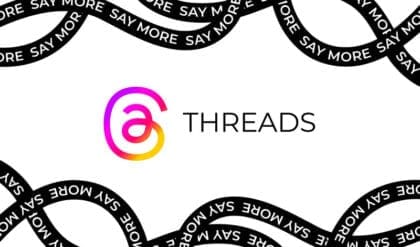Protect Your Account and Personal Information
In the digital age, the sophistication of phishing scams has escalated, often making it challenging to differentiate between legitimate communication and deceptive fraud. A recent scam, reported by Trustwave, is now targeting Instagram users, capitalizing on fears of copyright infringement and account deletion. This article aims to educate and guide readers on recognizing and protecting themselves from such devious tactics, ensuring the security of their personal information and social media accounts.
Understanding the Scam: A Closer Look
The latest scam impersonates Meta, the parent company of Instagram, sending users alarming emails claiming their accounts have committed copyright infringement. The email threatens account deletion within 12 hours if the user does not appeal. Despite its urgency, the email harbors several red flags signaling its fraudulent nature.
- Suspicious Email Content: The email often starts with generic greetings like “Hi! Dear [Your Name],” and contains instructions to click on a misleadingly labeled button, such as “Go to appeal form.”
- Inaccurate Email Address and URL: The sender’s email address does not originate from Meta. Instead, it comes from dubious domains like “contact-helpchannelcopyrights[.]com.” Furthermore, the link to the supposed appeal form redirects to a non-Meta URL, often a Google Notification link.
- The Trap of the Appeal Process: The scam lures victims to a fake Meta “Violation Status Central Portal,” where it prompts for Instagram credentials. The ultimate goal is to acquire one of the user’s backup codes for two-factor authentication (2FA), under the guise of “protection.”
The Mechanics of Two-Factor Authentication (2FA)
Two-factor authentication, a critical security measure, involves sending a code to a trusted device during a login attempt. This process keeps unauthorized users at bay, even if they have your username and password. Instagram also utilizes backup codes for situations where you cannot access your trusted device. These one-time-use codes act as an alternative to the 2FA code. Handing over these codes to anyone, especially through suspicious emails, severely compromises your account’s security.
Effective Strategies to Combat Phishing Scams
- Verify Sender’s Domain: Always scrutinize the sender’s domain. A legitimate email from Meta or Instagram should have a corresponding official domain. Scammers often use misleading names that, upon closer inspection, reveal fraudulent domains.
- Exercise Caution with Links: Hover over links to preview the URL. Authentic links should lead to recognizable, related domains. Avoid clicking on links that appear as random characters or irrelevant company names.
- Identify Errors in Content: Big corporations like Meta do not send out emails with grammatical errors or poor formatting. Any such inconsistencies are telltale signs of a scam.
- Avoid Unnecessary Actions: If you accidentally click on a suspicious link, do not proceed further. Avoid downloading files or entering any personal information.
- Direct Confirmation: If you receive a dubious request, verify it by reaching out directly to the company or individual through official channels, such as the legitimate website of Instagram.
Conclusion: Vigilance is Key
In the face of evolving digital scams, staying informed and vigilant is paramount. By understanding the tactics of scammers and adopting cautious online practices, you can effectively safeguard your personal information and social media accounts. Remember, your cybersecurity is in your hands, and awareness is your strongest shield against these digital predators.







